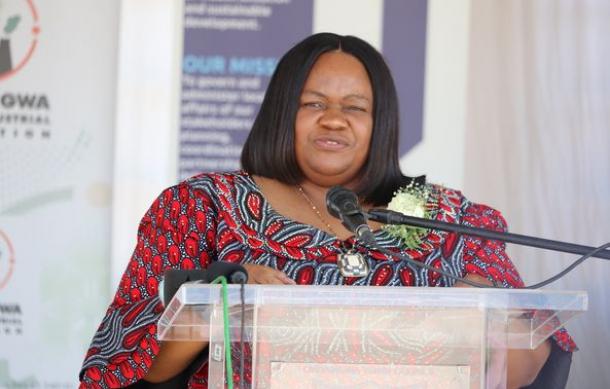
Namibia is currently transforming the old export processing zones (EPZs) into special economic zones (SEZs).
The EPZs were unsuccessful in collecting the requisite taxes for the Treasury, and they also contributed to Namibia being blacklisted as a tax haven.
The Minister of Industrialization and Trade, Lucia Iipumbu, revealed this during a consultation meeting with stakeholders on the draft Special Economic Zone Bill held at Walvis Bay.
Lucia Iipumbu says that in light of the negative development, it has become necessary to reconsider the EPZs and the need to seek a more conducive and sustainable regime, hence the shift to the SEZs.
The ministry is in the process of developing a national policy on the informal economy, start-ups, and general entrepreneurship.
The policy aims to create an enabling environment that focuses on key aspects, such as understanding the needs of informal business operators.
Iipumbu says that the policy seeks to provide entrepreneurial training, support business infrastructure for the sector, integrate digitalization, and establish incentives for sectoral development.
"Special Economic Zones have over the years proven to be catalysts for economic transformation around the globe. This is done by creating specific areas with favourable business conditions and incentives advanced by the government to boost and attract both domestic and foreign investments, foster innovation, and generate employment opportunities. The Ministry has therefore embarked on a journey to tailor this concept to our unique needs and aspirations as a country as we strive to have it as a law to replace the Economic Processing Zone (EPZ) regime, which has thus far brought about various challenges."
Iipumbu added that the establishment of Special Economic Zones can significantly boost industrialization, enhance export capabilities, and stimulate economic growth, especially in the Africa Continental Free Trade Area.
"The Erongo Region remains a prime hub of diverse economic activities due to its rich natural resource endowment. This region is therefore strategic in attracting investments in various sectors such as mining, fishing, renewable energy, including green industrialization, and logistics, to mention but a few. It is therefore important that we ensure that this bill is fit for purpose and use it to guarantee that we create an avenue for value addition to our resources to create much-needed jobs. The public had this to say."
There were also consultations in 2022 focusing on the Namibia Promotion and Facilitation Bill.
Since then, the ministry has developed regulations that will guide the implementation of this law; thus, regulations require input.





